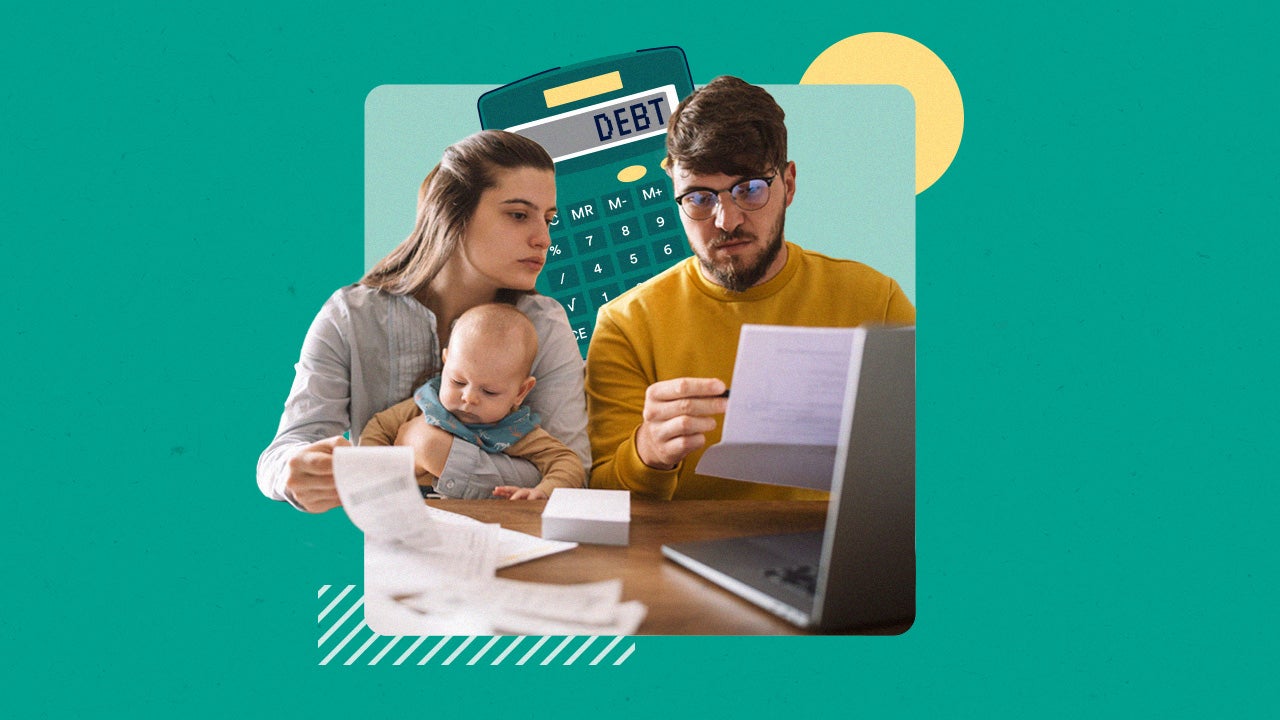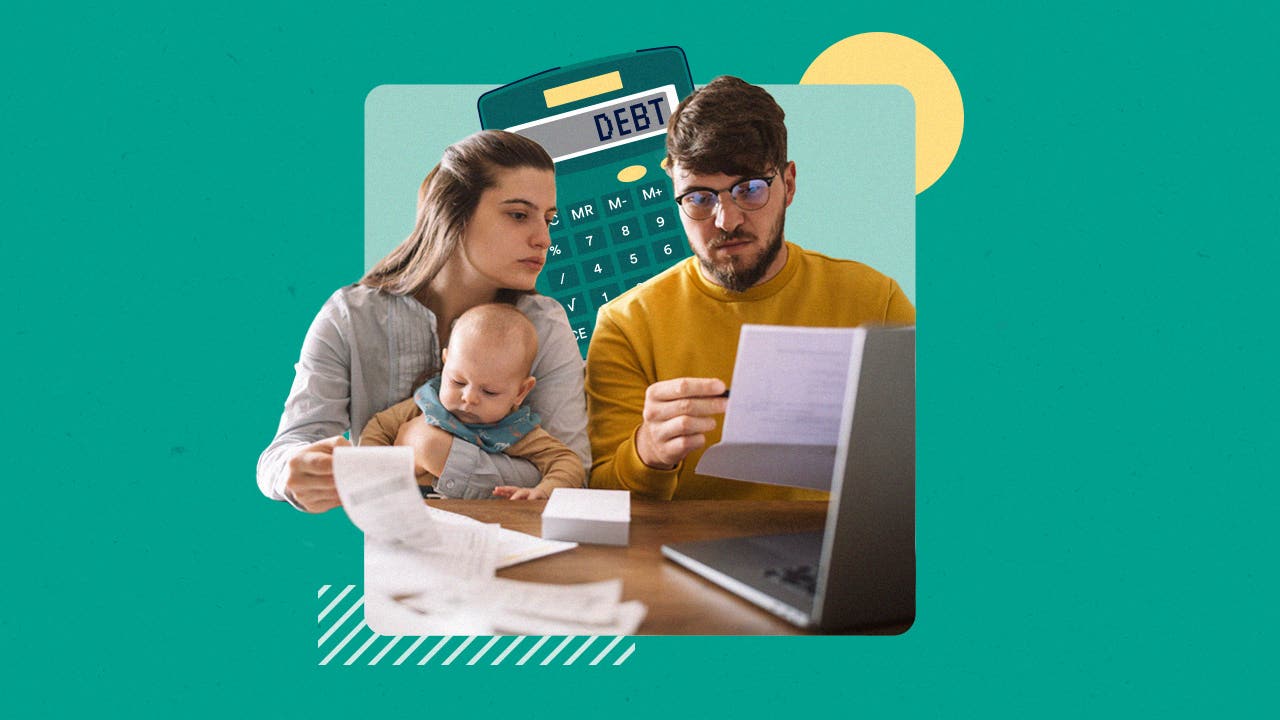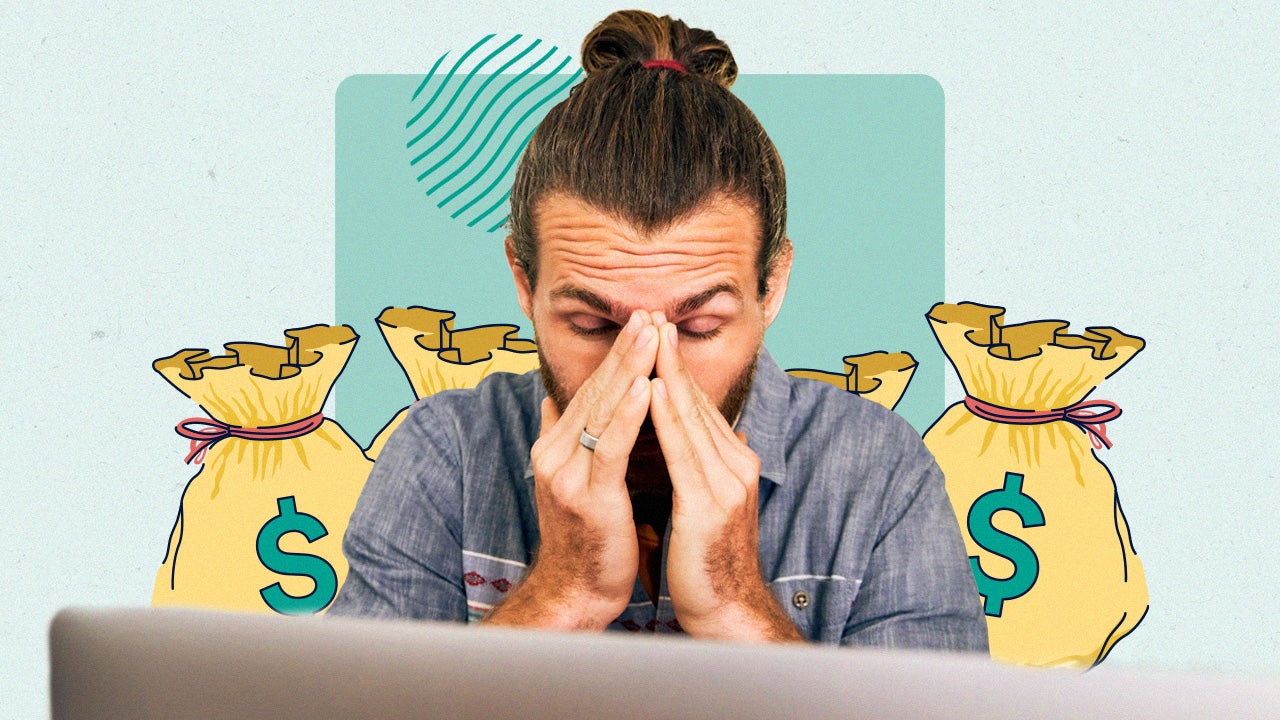Paying off debt in tough financial times



Talks of recessions, economic slowdowns, a tough job market and inflation have many Americans wondering how to prepare their finances for a possibly stormy future. Economic hard times can be especially difficult when you’re paying off debt, as layoffs, reduced business and higher interest rates can impact how you pay off your debt and what you’re paying each month.
While these circumstances may make you worry about being able to pay off your debt, you can prepare yourself and your finances for tough times and keep your debt repayment plan on track.
Get a pulse on your budget
The first step you should take when times get tough is to know where your money is going. Setting up a budget will tell you how much you’re spending each month, how much you need to put aside for essential expenses and where you can cut down.
Identifying your discretionary expenses will help you identify where to cut down during hard times and how much wiggle room you have. If you experience a loss of income, you can see how much you need to have on hand to pay for essentials and where to cut back.
A budget can also help you stick to a financial plan, allowing you to save more and ensuring you have enough to pay for your essentials.
Several tools can help you create a budget, including Bankrate’s Home Budget Calculator. You may also have access to budgeting and spending tracker tools through your bank and credit card providers.
It’s a good idea to leave a bit of wiggle room in your budget to account for unexpected expenses, such as an increase in prices due to inflation or an increase in other costs like insurance premiums.
When it comes to budget, it doesn’t mean that you have to immediately cut out everything that matters to you. As long as you can balance your books, you can build a budget that can work for you – even when times are hard.
Keep your emergency fund stocked
Your emergency fund is one of your most important assets during tough financial times. Two in three Americans (66 percent) wouldn’t be able to pay for a $1,000 emergency expense from their savings, forcing them to miss payments or rely on their credit cards, personal loans or help from friends and family when the unexpected happens.
An emergency fund is your financial cushion for events like a job loss, a medical emergency or an otherwise unexpected expense. By having an emergency fund, you can still pay for your essential expenses.
While experts generally recommend an emergency fund to have at least six months’ worth of essential expenses, even a small emergency fund – say, $300 – can help. Saving a little bit every month by using your budget, cutting down on expenses or taking on a side hustle can help you jumpstart your fund.
By having an emergency fund on hand, you’ll save money in the long run by avoiding late fees, interest on debt or seeing your credit score take a hit from missed payments. Your future self will thank you.
Gather your resources
Having a budget in place and an emergency fund aren’t the only resources you can rely on. You can prepare for emergencies in ways that go beyond financial resources.
It’s important to keep your resume and network up-to-date in case of a job loss. Keeping an eye on the job market and updating your skillset can make the job search easier. In addition, having a side hustle such as ridesharing, food delivery or pet sitting can give you both extra income and a backup plan.
You can access several other resources if you’re experiencing financial hardship. Local, state and federal programs can offer assistance with food, childcare, education, housing and other costs.
Finally, building a support system that you can rely on in tough times can be helpful. Your friends and family can be a safety net in times of need – whether it’s a ride to a job interview, a shared membership to a bulk grocery store or help with childcare.
Make paying off debt a priority
When you’re struggling to pay the bills, debt might be the last thing on your mind. However, paying off your debt quickly should be a top priority when times get hard.
The more debt you pay off, the more breathing room you can give yourself in your budget and the more you can build up your emergency fund. Having one less bill to pay means you don’t have to worry about late payments or a negative mark on your credit history when you’re having trouble making ends meet.
High-interest and variable-interest debt, such as credit card debt, should be a top priority for payoff. High interest quickly increases your balance. The longer you wait, the more out-of-hand it can become. For example, a $1,000 credit card balance with a $25 minimum payment would take you 87 months – for over seven years – to pay off, costing you $1,172 in interest alone.
Paying off your balance in full as quickly as possible can free you from years of debt and save you thousands of dollars in interest.
Strategize your debt repayments
When you set up your debt repayment plan, one of the first things you want to do is be strategic with your debt repayments. While you may eventually pay off a loan by making only the minimum payments, adding a bit of extra money to your monthly payment and prioritizing certain debts can help you pay off your debt faster.
Being strategic about those payments can help your money go further and save you on interest without having to contribute too much extra.
There are a couple of ways to do this if you have multiple debts. The snowball method focuses on paying down your smallest debts first, eliminating the interest that can accrue on your total balance over time. The debt avalanche method focuses the bulk of your payments on your highest interest balances, preventing your debt from accruing too much interest over time.
Which method is right for you depends on your debts, how much extra you can pay and your interest rates. A payoff calculator can help you determine which method will make the most impact.
Know your options for debt modification
If your financial situation changes, you may want to consider modifying your loans to change the payment dates and amounts. This can give you some breathing room while you wait for the storm to pass without missing any payments.
You can change the terms of your debt repayments in a few ways.
Refinancing
Refinancing your loan can allow you to get a better interest rate on your loan, either by reducing the overall rate or giving you an interest-free introductory period for a certain amount of time, such as with a balance transfer credit card.
Refinancing comes with some downsides. You’ll have to take out a new loan or line of credit, which involves a credit check and possible fees. Your interest may go up after the introductory period, and your balance won’t change.
Consolidation
Consolidating your debt allows you to bundle multiple loans into one balance, simplifying your payments and applying a single interest rate to your entire debt.
Consolidation can make your payments simpler. However, you may end up paying more interest in the long run, especially if the interest rates on your original balances were low. In addition, you’ll still have the same overall balance on your debt and may end up paying the same amount as before.
Deferment
Loan deferment is when your lender allows you to pause your loan payments for a certain period of time. By deferring a loan, you can avoid late payment fees and penalties to your credit history while you get back on your feet.
You may not always be able to qualify for deferment, as it depends on your lender, the loan, your payment history and other factors. Your deferment must be approved by your lender for a certain period, giving you a limited amount of time to work on your finances. On top of that, your interest will continue to accrue – meaning your balance can grow while you’re not making payments.
Debt relief
Debt relief can help you reduce your owed debt amount and pay an amount that works for your budget, allowing you to pay off your balance even when you’re going through hard times.
Debt relief companies such as National Debt Relief negotiate with creditors to reduce the balance of your debt, allowing you to make payments within your means and pay off your debt in a reasonable timeline.
Debt relief generally only applies to unsecured debt, such as credit card debt, medical debt, and some student loans, and can impact your credit score. However, if you’re struggling with economic circumstances that prevent you from making payments, it may be an option to consider.
What next?
You can’t always control the big picture of the economy. Recessions, layoffs, market shifts and other movements can have a big impact on your personal finances. However, with the right resources and preparation, you can still pay off your debt in tough financial times – and know that the storm, and your balance, aren’t going to last forever.
If you want to learn more about managing your finances and debt repayment plan, check out Bankrate and National Debt Relief’s ongoing article series about all things debt. Watch this space for tips, tricks and exclusive stories from readers like you and their debt repayment journeys.
Why we ask for feedback Your feedback helps us improve our content and services. It takes less than a minute to complete.
Your responses are anonymous and will only be used for improving our website.





